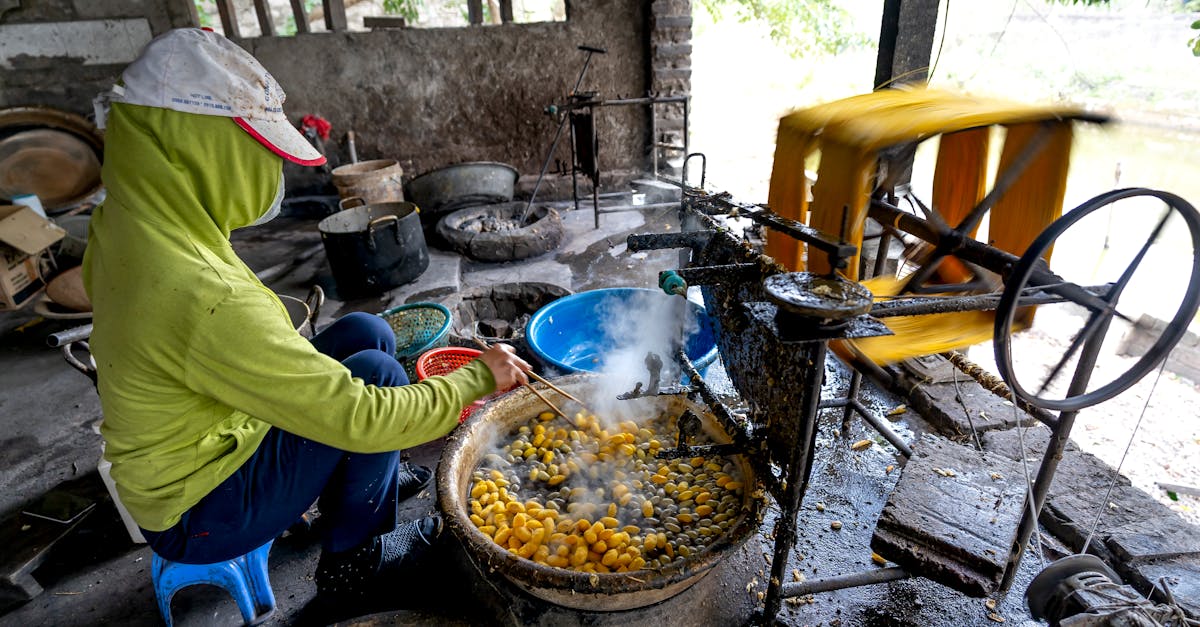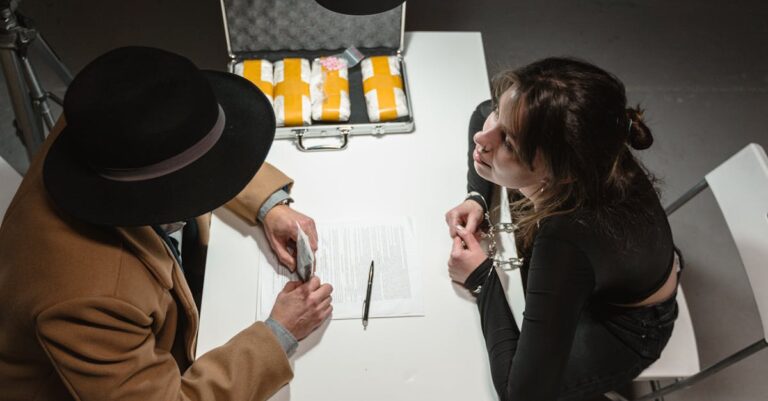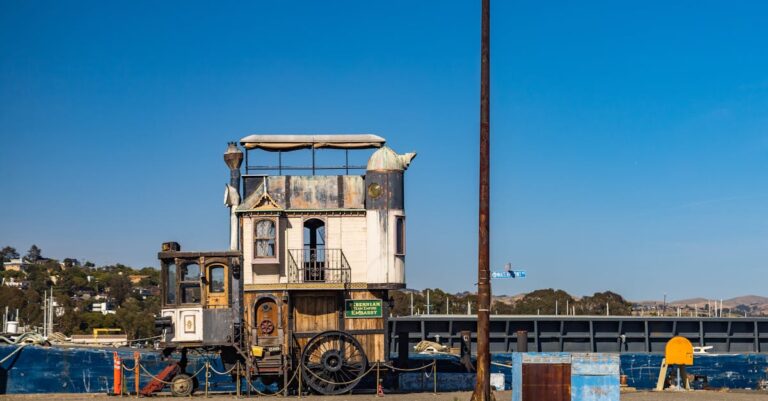
## Crimson Threads
The air tasted of salt and dust, a perpetual film on Anya’s tongue. Sweat beaded on her forehead as she wrestled the loom, its wooden frame groaning under the strain of vibrant silk threads. Around her, the rhythmic click-clack of countless looms filled the sprawling embroidery farm—a hive of activity under the watchful eyes of Signora Bellini, a woman whose smile never quite reached her shrewd grey eyes.
Anya’s fingers moved with practiced ease, weaving a field of deep crimson poppies against a backdrop of azure sky. Not the pale, manufactured red favored by Signora Bellini. *This* was fire, a color born from the earth itself, pulsing with a life unknown to these walls.
“Faster, Anya,” Signora Bellini’s voice cut through the din. “The Pasha wants these tapestries within the week.”
Anya didn’t respond, her focus locked on the cloth. She felt a familiar tremor of fear—not for herself, but for the secret she guarded. A secret locked within the volcanic soil of Monte Malocchio, a mountain locals whispered was cursed, haunted by spirits and ancient pacts.
The farm churned out endless lengths of embroidered linen, destined for the grand houses of Palermo and beyond. Bland colors – muted blues, earthy browns, safe greens—all reflecting the cautious aesthetic of a land under Arab rule. But Anya’s crimson was different. It screamed defiance, whispered forbidden knowledge.
She slipped a damp cloth over her forehead, the scent of volcanic ash clinging to it. Tonight, she would climb again.
The moon hung fat and silver over Monte Malocchio. The path was treacherous, slick with damp moss and scattered with loose shale. Anya didn’t bother with a torch; she knew the mountain in her bones now, could navigate its hidden trails blindfolded.
The air thinned as she ascended, carrying the pungent aroma of sulfur and something else—a faint, earthy fragrance that resonated with an ancient power. Finally, she reached the hidden grotto, a fissure in the mountainside veiled by curtains of cascading vines.
Inside, pools of steaming water shimmered turquoise in the moonlight. Clumps of ochre-colored lichen clung to the cavern walls, alongside vibrant veins of copper that bled into the rock. But Anya wasn’s seeking minerals; she sought the *Fior di Sangue* – the Flower of Blood.
A rare lichen, found only on this cursed mountain, its pigment harvested precisely at the full moon. It contained a crimson so deep, it seemed to absorb light instead of reflecting it. Old women whispered that the flower held a sliver of the mountain’s fiery heart, stolen from Vulcan himself.
She knelt, her fingers tracing the velvety texture of the lichen. A shiver ran through her as she remembered her grandmother’s words, a legacy passed down through generations of women: *“The mountain remembers. The earth speaks. Respect its power, or it will consume you.”*
“Careful, child,” a raspy voice echoed from the shadows.
Anya whirled around, her hand instinctively reaching for the small knife she kept concealed beneath her tunic. An old woman emerged from the darkness, her face a roadmap of wrinkles, her eyes as black and deep as volcanic glass.
“You seek the *Fior di Sangue*?” The woman’s voice was devoid of accusation, merely a statement.
“My grandmother sent me,” Anya replied, her voice barely above a whisper.
The old woman nodded slowly. “Aella sent you? She was wise.” She gestured to a basket overflowing with crushed lichen. “Take what you need. But remember, this color… it carries a burden.”
“What burden?” Anya asked, her brow furrowing.
“It speaks the truth,” the old woman said cryptically. “A truth that some wish to remain buried.”
The descent felt quicker, lighter. Anya carried the crushed lichen carefully, a treasure more valuable than gold. Back at the farm, she mixed the pigment with water and carefully applied it to a length of silk.
The crimson bloomed on the fabric, vibrant and alive. Signora Bellini approached, her eyes narrowing as she examined the work.
“Where did you get this?” She demanded, her voice sharp.
“From Palermo,” Anya lied smoothly. “A new supplier.”
Signora Bellini scrutinized the color, her expression unreadable. “It’s… striking,” she conceded finally. “But we need more.”
Anya nodded, her heart pounding against her ribs. She would continue to climb the mountain, to harvest the forbidden pigment, weaving a rebellion in crimson threads.
Weeks later, a grand feast was held at the Pasha’s palace. Tapestries woven by the farm adorned the walls—all featuring Anya’s crimson poppies, intertwined with scenes of Sicilian life. The Pasha himself lingered over one particular tapestry, his gaze fixed on the vibrant poppies.
“This color… it’s like fire,” he murmured to his advisor, a stern-faced man named Hakim.
“It’s a new dye,” Hakim replied dismissively. “From Palermo, I believe.”
But Anya saw something flicker in the Pasha’s eyes—a spark of recognition, a hint of unease.
That night, whispers began to circulate through Palermo. Rumors of a new artist, a mysterious woman who wove colors that seemed to speak secrets.
Hakim, suspicious and power-hungry, began an investigation. He questioned the workers at the farm, scrutinized their work, searching for any sign of dissent.
“Who is she?” he demanded of Signora Bellini, his voice laced with menace. “The one who dyes the fabric crimson.”
Signora Bellini remained impassive. “She’s just a young girl, Hakim,” she replied smoothly.
But Hakim didn’t believe her. He ordered the farm to be searched, every loom, every thread examined for signs of illicit activity.
Anya knew her time was running out. But she refused to be silenced, wouldn’t let her grandmother’s legacy die with her. She continued weaving, pouring every ounce of defiance into her crimson threads, creating a tapestry that depicted not the idyllic life celebrated by the Pasha, but the harsh realities of Sicilian existence under Arab rule: the poverty, the oppression, the simmering resentment.
She finished the tapestry just as Hakim’s men stormed the farm, their swords drawn. Signora Bellini stepped forward, shielding Anya with her own body.
“She is a loyal worker,” she declared firmly. “She dyes the fabric according to my instructions.”
Hakim laughed, a cold, humorless sound. “And what does that fabric depict?” he asked, gesturing to Anya’s latest creation.
Anya stepped forward, her eyes locked with Hakim’s. “It depicts the truth,” she said, her voice clear and unwavering.
Hakim’s face contorted in fury. He ordered his men to seize Anya, but before they could reach her, a commotion erupted outside the farm.
A group of Sicilian villagers, armed with farming tools and fueled by years of unspoken grievances, attacked the farm, confronting Hakim’s men in a chaotic melee. The villagers were spurred to action by whispers of Anya’s tapestry, a visual cry for liberation that resonated with their own suppressed desires.
Anya seized the opportunity to escape, grabbing her unfinished tapestry and fleeing into the darkness.
She climbed Monte Malocchio once more, seeking refuge in the grotto where her grandmother had taught her to respect the mountain’s power. The old woman was waiting for her, a knowing smile on her face.
“The threads have been woven,” she said softly. “Now, it is time to see what tapestry they create.”
Anya looked back at Palermo, a distant city shimmering under the moonlight. She knew her journey was far from over. The crimson threads she wove were not just colors, but symbols of hope and defiance—a promise of a new dawn for Sicily, a future where the land would once again sing its own song, free from oppression.
The tapestry was just beginning to unfold. And Anya knew she would continue to weave it, thread by crimson thread.


